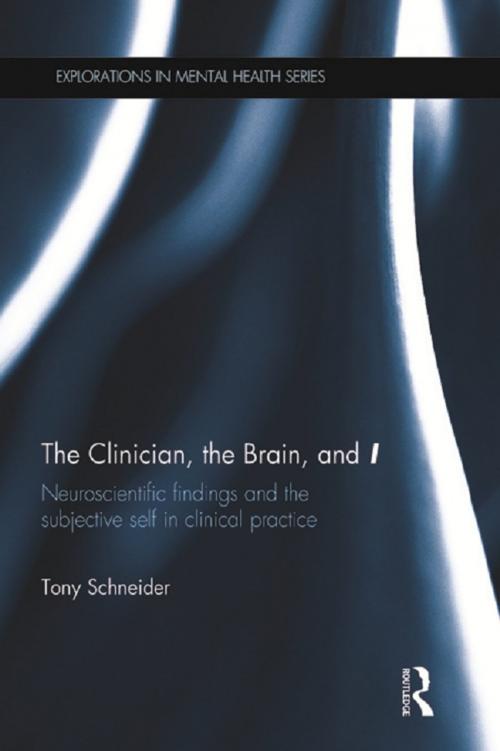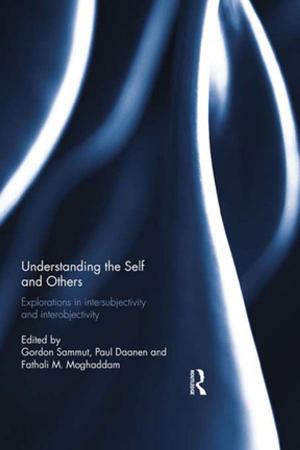The Clinician, the Brain, and 'I'
Neuroscientific findings and the subjective self in clinical practice
Nonfiction, Health & Well Being, Psychology, Neuropsychology, Clinical Psychology, Mental Health| Author: | Tony Schneider | ISBN: | 9781135039103 |
| Publisher: | Taylor and Francis | Publication: | July 18, 2013 |
| Imprint: | Routledge | Language: | English |
| Author: | Tony Schneider |
| ISBN: | 9781135039103 |
| Publisher: | Taylor and Francis |
| Publication: | July 18, 2013 |
| Imprint: | Routledge |
| Language: | English |
The clinician needs to make sense of many client experiences in the course of daily practice: do these experiences reflect the simple product of complex neurochemical activity, or do they represent another dynamic involving the subjective self? When research findings from the neurosciences are applied to clinical psychology, reductionist thinking is typically followed, but this creates problems for the clinical practitioner.
In this book Tony Schneider draws together the three strands of philosophy, neuroscience, and psychology to explore the mind/body question as it affects the clinician. Taking a position more closely aligned with dualism, he argues for the utility in making distinctions between brain activity and ‘I’ – the subjective self – both in general psychological functioning and in psychopathology. Schneider considers traditional psychological topics contextualized by neuroscience research and the mind/body issue, as well as applying the ideas to various areas of clinical practice. Topics include:
-the mind and body from the clinician’s perspective
-fundamental aspects of the role and mechanics of the brain
-the developing self and the relationship of ‘I’ with the self and with others
-psychological functioning such as focus and memory, sleep and dreaming, and emotions and pain.
The idea that ‘I am not my brain’ will resonate with many clinicians, and is systematically argued for in clinical literature and neuropsychology research here for the first time. The book will be of particular interest to psychologists, psychiatrists, counsellors and clinicians who wish to incorporate advances in neuroscience research in the conceptualization of their clinical work, and are looking for a working model that allows them to do so.
The clinician needs to make sense of many client experiences in the course of daily practice: do these experiences reflect the simple product of complex neurochemical activity, or do they represent another dynamic involving the subjective self? When research findings from the neurosciences are applied to clinical psychology, reductionist thinking is typically followed, but this creates problems for the clinical practitioner.
In this book Tony Schneider draws together the three strands of philosophy, neuroscience, and psychology to explore the mind/body question as it affects the clinician. Taking a position more closely aligned with dualism, he argues for the utility in making distinctions between brain activity and ‘I’ – the subjective self – both in general psychological functioning and in psychopathology. Schneider considers traditional psychological topics contextualized by neuroscience research and the mind/body issue, as well as applying the ideas to various areas of clinical practice. Topics include:
-the mind and body from the clinician’s perspective
-fundamental aspects of the role and mechanics of the brain
-the developing self and the relationship of ‘I’ with the self and with others
-psychological functioning such as focus and memory, sleep and dreaming, and emotions and pain.
The idea that ‘I am not my brain’ will resonate with many clinicians, and is systematically argued for in clinical literature and neuropsychology research here for the first time. The book will be of particular interest to psychologists, psychiatrists, counsellors and clinicians who wish to incorporate advances in neuroscience research in the conceptualization of their clinical work, and are looking for a working model that allows them to do so.















